I'm working on android application that contains ViewPager with Fragments, like this:
MainActivity(MainActivityFragment(screenSlideViewPager(Fragments))), which means:
Activity contains Fragment contains ViewPager contains Fragments
Now my problem is when rotate device or change screen rotation all Fragments in ViewPager are disappear.
any ideas to solve this issue?
EDIT 1
MainActivity.java:
@Override
protected void onCreate(Bundle savedInstanceState) {
super.onCreate(savedInstanceState);
if (getSupportFragmentManager().findFragmentByTag(TAG) == null) {
final FragmentTransaction ft = getSupportFragmentManager()
.beginTransaction();
ft.add(android.R.id.content, new MainActivityFragment(), TAG);
ft.commit();
}
}
MainActivityFragment.java:
public class MainActivityFragment extends Fragment {
private ViewPager mPager = null;
private PagerAdapter mPageAdapter = null;
@Override
public View onCreateView(LayoutInflater inflater, ViewGroup container, Bundle savedInstanceState) {
final View reVal = inflater.inflate(R.layout.activity_main, container, false);
mPager = (ViewPager) reVal.findViewById(R.id.pagerMainContent);
mPageAdapter = new ScreenSlidePagerAdapter(getActivity().getFragmentManager());
mPager.setAdapter(mPageAdapter);
return reVal;
}
private MainGridViewFragment mainGridFragment;
private AlphabetGridViewFragment alphabetGridFragment;
private class ScreenSlidePagerAdapter extends FragmentStatePagerAdapter {
public ScreenSlidePagerAdapter(FragmentManager fm) {
super(fm);
}
@Override
public android.app.Fragment getItem(int position) {
switch (position) {
case 1:
mainGridFragment = new MainGridViewFragment();
return mainGridFragment;
case 0:
alphabetGridFragment = new AlphabetGridViewFragment();
return alphabetGridFragment;
default:
return null;
}
}
@Override
public int getCount() {
return 2;
}
}
}
EDIT 2

Obviously MainActivity and MainActivityFragment are loaded, and the proof is The ActionBar,
notice also that ViewPager is loaded too, because you still can navigate between pages (the blue light means that the pager reached to last page) but you can't see its content.